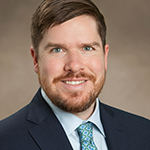Author
In 2019 the Texas Legislature session passed several bills related to freestanding emergency centers. The legislation attempted to curb what freestanding emergency centers charge We can help facilities avoid charging “unconscionable” charges, and can help freestanding emergency centers set their charges to comply with the statute.
The statute defines “unconscionable” charges by reference to hospital charges for emergency services. Most hospitals update their charges at least annually. To ensure continued compliance with the statute, RPC recommends freestanding emergency centers review their chargemasters annually.
RPC can also assist freestanding emergency centers to resolve payment disputes.
Avoiding Unconscionable Charges
The 2019 Texas Legislature passed House Bill 1941, “An Act relating to unconscionable prices charged by facilities for medical care.” This new law took effect September 1, 2019. It defines “unconscionable charges” as charges by a freestanding emergency center that equal or exceed 200% of the average charge for the same or substantially similar services provided by hospital emergency departments. The Attorney General is responsible for enforcing the statute.
RPC can help freestanding emergency centers avoid problems with the Attorney General’s Office by setting their charges below the threshold. RPC has the most recent hospital charge data from the Department of State Health Services and can perform the necessary analysis. RPC can:
- Take the chargemaster for the FSED;
- Identify relevant hospitals;
- Calculate the average charge for each hospital for each CPT and HCPCS code in the FSED’s chargemaster, using the most recent 12 months of data from the state;
- Adjust hospital charges for inflation, using Bureau of Labor Statistics data;
- Identify the FSED charges by CPT code at or above 200% of the average hospital ER charge (the “unconscionable prices”);
- Provide the FSED with data in an EXCEL workbook, with a report explaining our sources and methods;
- Determine the revenue impact of eliminating “unconscionable” prices or other chargemaster edits by analyzing the FSED’s most recent 12 months of claims data against a revised chargemaster.
Payment Disputes Involving Freestanding Emergency Centers
RPC can assist clients in both in-network and out-of-network payment disputes involving freestanding emergency centers. For out-of-network disputes, RPC can determine usual, customary, and reasonable charges for services, or determine payments due under federal or state laws. Senate Bill 1264 covers freestanding emergency centers and their physicians. Beginning in 2020, their out-of-network payment disputes are subject to the mediation and arbitration processes established by the Act. RPC can help providers and health plans determine reasonable payment for services under the criteria in the Act.
RPC can also help providers and health plans resolve in-network payment disputes involving freestanding emergency centers when parties disagree about the interpretation of or calculations in the agreement. For in-network claims, Texas’ Prompt Pay Act allows providers to be paid full charges, penalties, and interest when health plans do not pay the negotiated rate, or dot not pay promptly or correctly. RPC can calculate amounts owed under the Prompt Pay Act.

